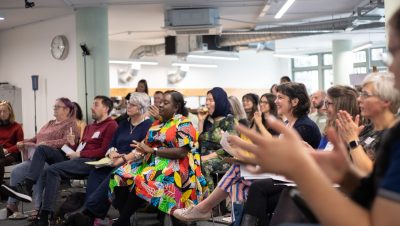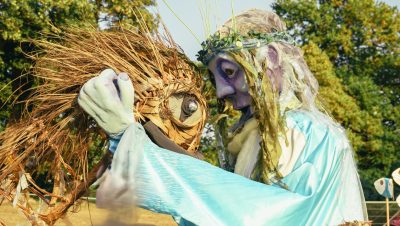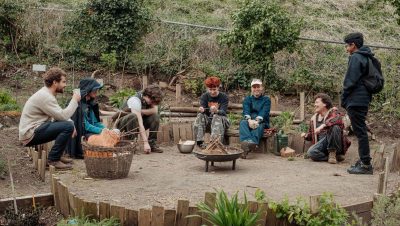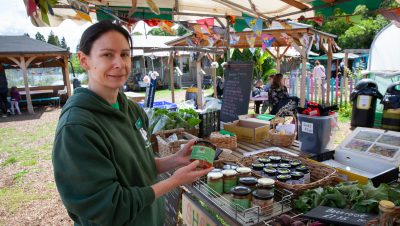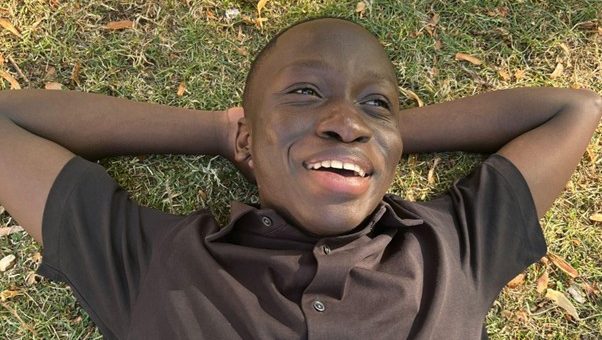
Features / nature connection
Laughter’s story: Finding nature, community and care in Bristol
Oscar Wilde once said, “If you want to be a grocer, or a general, or a politician, or a judge you will invariably become it; that is your punishment… If each day you are unsure of who you are and what you know, you will never become anything and that is your reward.”
For 22-year-old Laughter Coker, who moved to Bristol from Nigeria to study engineering, that uncertainty has been a gift.
His path has unfolded in unexpected ways—from a student adjusting to a new country, to a conservationist, goat herder and teacher deeply embedded in the city’s natural spaces.
is needed now More than ever
Now, Laughter is using his journey to create opportunities for other young people from similar backgrounds to find their own connections with nature.
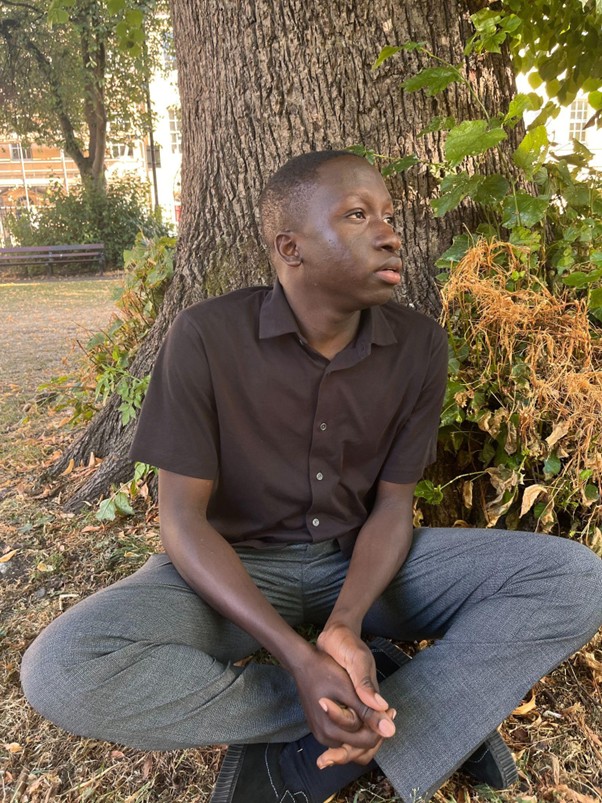
Laughter recalls that in the early days of his move to Bristol, his primary focus was settling into a new culture and keeping up with the demands of university life. But everything changed one evening during a workshop in Portland Square, organised by youth empowerment organisation Babbasa.
“I remember coming from a very hectic and long day at university and running late to the workshop,” he says. “I didn’t plan on engaging that much, but then we moved the evening outside to Portland Square.
“Sitting on one of the benches felt like my first rest of the day. I closed my eyes and I started to notice the birdsong, the wind, the trees… That moment was the start of my personal journey with and in nature.”
That encounter ignited something. Laughter began to notice and engage more with the green spaces around Bristol—places like Stoke Park, Purdown and beyond. He immersed himself in nature-related projects.
“After the experience at Portland Square I started noticing nature around me, taking every opportunity from a place of care and connection.
“This led me to undertake lots of nature-related projects with different charities and organisations. Meeting farmers, nature workers, conservation specialists, and hedge layers helped me develop a sense of care and action. This was my way of facing the big bad climate change.”
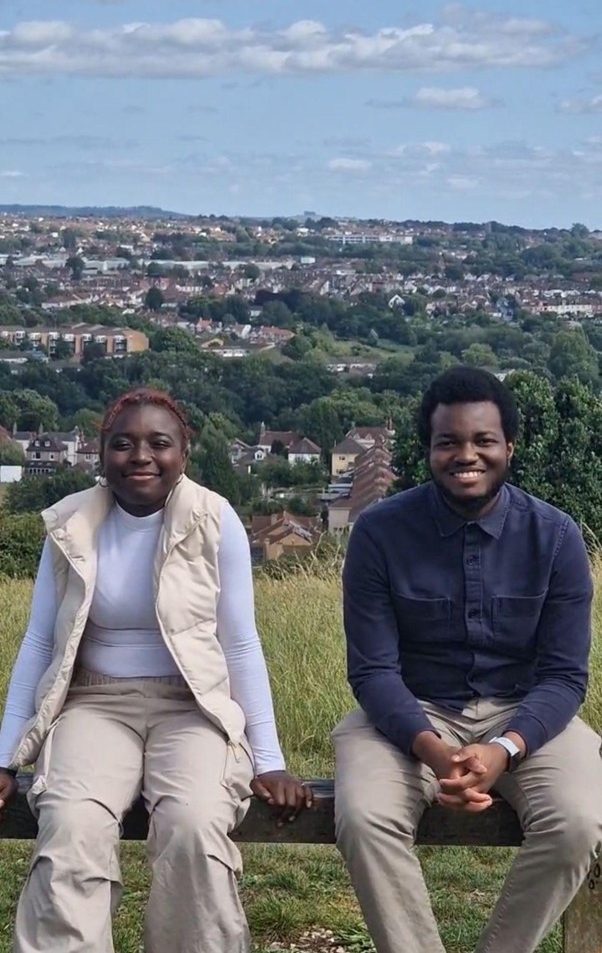
Laughter wants to share the benefits he’s found in the natural environment with others; Shina and Stephen joined took part in his first nature connection workshop in Stoke Park – photo: Laughter Coker
“There are different people and organisations in Bristol who opened the door for me to take a peek at the possibilities,” Laughter says. “So I wanted to open the same door for others—especially those who moved here from Nigeria, like me.”
Recently, supported by Mafia Weekend CIC, he hosted a wellbeing walk for three Nigerian international students to Stoke Park.
“It was simple,” he says. “We covered transport and food using a small pot of funding I received. But it was about more than the walk. It was about giving people permission to exist in nature—to notice other lives apart from humans, to just be.”
Laughter has also spent time as a goat herder with another Bristol-based organisation, Street Goat.
“I remember getting a job rejection email one day while taking care of the goats. I didn’t even feel disappointed. I was surrounded by life. Watching baby goats run around reminded me that life goes on, regardless of your career plans.”
View this post on Instagram
Laughter is thoughtful about the dual realities he inhabits. As a young Black man welcomed by many in Bristol’s environmental spaces, he also carries the weight of colonial histories that complicate the picture.
“I exist in the duality of being supported by incredible people and organisations here, while also knowing Britain’s past in Africa,” he says. “But that’s made me more aware. It’s helped me see what’s possible, and who’s making the effort to acknowledge privilege and make space for others.”
He recalls one moment at Fernhill Farm, where he was the only young Black person in a room of older, white men.
“That wasn’t surprising. But what moved me was how many of them acknowledged their position, their privilege—and chose not to remain complicit. That gives me hope.”
For Laughter, this work is not about “bringing” people into nature as much as reminding them that they belong there too.
“Nature doesn’t discriminate. She doesn’t bother with labels. When I’m with nature, I’m not a Nigerian boy—I just am,” he says.
His work reflects a broader shift in how we think about access to green space—from something to be “given” to marginalised communities, to something already rooted in their histories and deserving of reconnection.
And for young people like Laughter, nature is not just scenery—it’s a space for rest, healing, discovery and, above all, possibility.
This piece was produced by Medha Ghosh as part of Bristol24/7’s Youth Climate Reporter scheme which seeks to amplify underrepresented voices and broaden the range of perspectives and stories we tell on environment issues. The scheme is funded by Bristol City Council and our public and Better Business members.
Main image: Medha Ghosh
Read next:
 Our newsletters emailed directly to you
Our newsletters emailed directly to you














